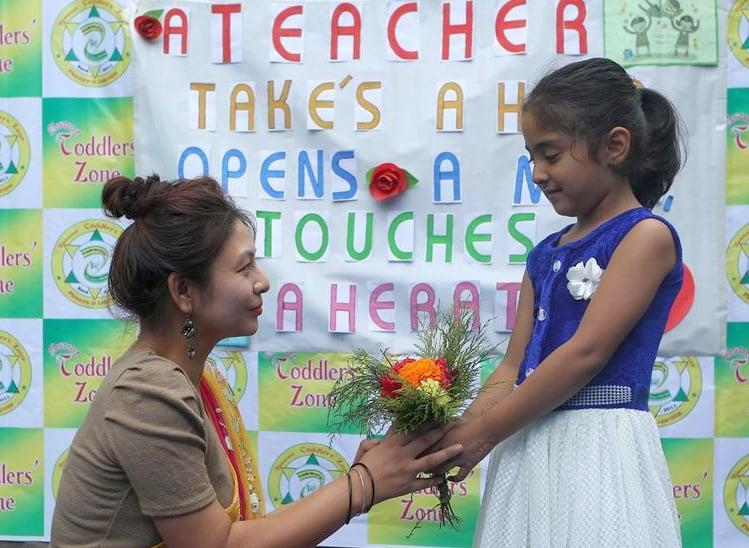Nepal Celebrates Guru Purnima with Reverence and Joy

Kathmandu – The festival of Guru Purnima is being celebrated today throughout Nepal with utmost respect and joy for mentors and teachers. The festival, falling on the Ashadh Shukla Purnima, is commonly observed as Teacher’s Day in Nepal. This day not only pays homage to the sacred relationship of a teacher and a learner, but it carries spiritual and historical significances as well.
The great sage Ved Vyasa, who is credited with writing the 18 Puranas and 18 Upapuranas, was born on this day. These writings of Vyasa have been crucial to the preservation and spread of Vedic knowledge because they provide in-depth commentary on the four Vedas. Vyasa conveyed timeless lessons of moral obligation and compassion through his writings. One such lesson is summed up in the saying, “Propakara punyaya, papaya parapidanam,” which states that doing good deeds brings virtue while harming others brings sin.
Nepalese customs and contemporary festivities
Guru Purnima is not merely the event of paying respects to ones mentors. It is celebrated not less than a holiday. It is a lively celebration of culture and appreciation that are often left unsaid. Members of various organizations and students from schools and universities participate in honoring their teachers. As a sign of respect, teachers are frequently given tika, garlands, candies, and symbolic gifts during ceremonies. Teachers bless their students in return, strengthening the enduring relationship between them. Moreover, various program of different scales re organized at the institutions of learning, where student perform various performative arts like dance, drama, song, etc to express their appreciation to their teachers and mentors.
In Nepali society, there is a wide range of people who can be regarded as gurus. In accordance with traditional Hindu beliefs, parents, elders, and even in-laws may be honored on this day if they have been a guiding influence in a person’s life, in addition to academic teachers. Senior family members, such as parents, grandparents, and others, are frequently regarded as life teachers who impart wisdom and values.
The ways to show gratitude have grown as times have changed. In addition to customary rituals, a lot of people now share meaningful messages and memories with their teachers via social media sites like Facebook, Instagram, WhatsApp, and Twitter. On this day, social media is flooded with images, digital cards, and sayings about education and mentoring.
Why Guru Purnima Holds Deep Meaning
The role of a guru is extremely sacred in Hindu philosophy. Enlightenment will be attained by those who revere both God and their guru equally, according to ancient texts like the Svetasvatara Upanishad. The famous Acharya Devo Bhava verse, “The teacher is God,” echoes the Taittiriya Upanishad’s encouragement of students to view their teacher as divine. The guru is even compared to Lord Shiva in the Guru Gita, a highly regarded text from the Skanda Purana.
During the Vedic era, a guru was frequently a Brahmin priest who led sacred ceremonies and initiated children into the study of the Vedas. Today, that traditional role has evolved, but the reverence remains. Whether they are classroom instructors, spiritual mentors, or life coaches, teachers continue to play a pivotal role in shaping individuals and, by extension, society.
Guru Purnima in Nepal is a day of reflection, appreciation, and cultural pride. It brings together ancient spiritual values and modern expressions of respect in a unified celebration. As students bow before their teachers and thank them for their wisdom, the festival reminds everyone of the lifelong impact a true guru can have on one’s journey.



